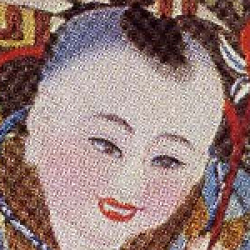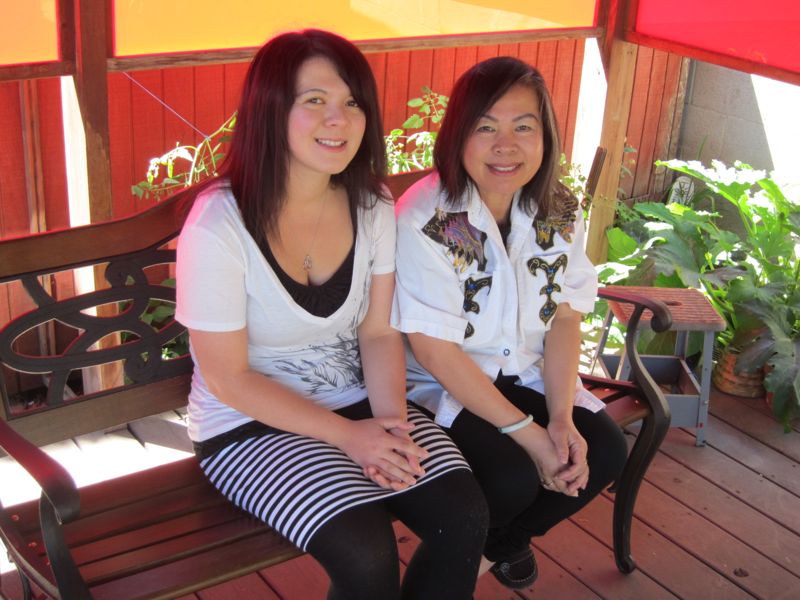I’m excited to run this post by Mary, who runs the wonderful blog The Ruby Ronin. Her mother was a refugee of the Vietnam War and her father a white American veteran; she writes about her experience growing up biracial in a small town in America — and how she came to appreciate her mother after growing up (and especially after her trip to Vietnam). Thanks for sharing Mary!
If you have a story you’d like to share on Speaking of China, we’re always looking for great guest posts. Visit the submit a post page to learn how your words could be published here.
—–
I didn’t realize that I was “different” until I hit the second grade. That’s when the kids started calling me “Chinese.”
“Am I Chinese, mom?” I asked my mother one day after school.
She exploded in laughter and replied, “Why do you think you’re Chinese?”
“Because everyone at school calls me Chinese.”
Her smiling expression soon turned to concern, “No, Mary, you’re not Chinese.” She replied sternly, “You’re Vietnamese.”
I cocked my head in confusion.
“What’s a Vietnanese?”
My mother was a refugee from the Vietnam War, my American father a veteran of that war. After the war my mother and father relocated to rural, coal mining America where I was the only “Asian” (half, really) in my elementary school. For most of my childhood and adolescent life, I was labeled as “Chinese” and my social identity revolved around my Asian ethnicity.
“Why does your mom talk funny?” my friends once asked me in third grade after meeting my mother for the first time.
It wasn’t until that moment I realized that, indeed, my mother was different. She was unable to pronounce certain words correctly and her grammar was off. Every now and then I heard her ramble off on the phone in a language I didn’t know, and which I could only assume was this newly discovered “Vietnanese.”
My mom used to drive us two hours north for the sole purpose of going to one of the rare Asian markets in our state and stocking up on Vietnamese food for the long winter. I remember those market visits vividly, because every time I set foot into that store all of my senses went into overload. The sound of live fish flapping in the seafood isle, the overpowering stench of freshly cut durian, the colors of all the exotic fruits in the produce section (dragon fruit!)—it was like being in another world.
Although I knew that somehow this culture was associated with me, it all felt so strangely foreign.
I used to cuddle up with my mom and watch Vietnamese movies together as a child. I couldn’t understand a word, although I desperately wanted to. I asked my mother to teach me Vietnamese multiple times, but she always refused. She laughed and said that teaching me Vietnamese was too much work, but I think deep down she wanted to give me a life that had nothing to do with the harsh, war-torn country she had just left. While she was still very Vietnamese at heart, she wanted her daughter to be nothing but American.
My mother and I could never communicate. I always wondered if it was culture, or language, or a little bit of both. When I told her I didn’t want fruit or another helping of food, she still cut up fresh apples or scooped an extra bowl of rice for me. When I tried to talk to her about my inner feelings and insecurities, she turned a deaf ear and seemed more concerned about the warmth of my coat or the food in my stomach. At times I felt like she didn’t care about who I was as a person, but it wasn’t until I moved to Asia later in life that I realized all of her so-called “minor” concerns was her way of showing love.
Growing up biracial, especially in a small town like we did, was extremely difficult. There were times I wanted nothing more than to be fully Asian so that I could finally blend in with my Asian relatives, and there were other times I longed to be completely American so that I could fit in with the kids at school.
It wasn’t until I moved to Asia later in life that I realized it wasn’t me that struggled the most—it was my mother and the hardships she endured living in America. Like many of us that move abroad, my mother coped with challenges such as living in a new language and trying to fit into a foreign society—but unlike most modern travelers today, she didn’t have the option that many of us have: to go home. Her country was torn by war and her Vietnamese passport revoked—even to this day, she has never returned to Vietnam.
My mother was completely isolated as the only Vietnamese person in our town, her only connection to home being interspersed phone calls with distant family and the Vietnamese movies I used to watch with her as a child.
I screamed at my mother a lot, because I didn’t understand. I wondered why she had to be so strange, why she couldn’t understand me, why our family had to be so different — yet she never yelled back. She only smiled.
Years later, I traveled to Vietnam alone to learn about a very important part of me—the history of my mother. I went to her old neighborhood in Saigon and to the markets she used to frequent as a child. Although my mother raised me to be the best American girl I could be, deep down I was still Vietnamese.
On the bus ride from Saigon to Hanoi, a song played on the radio. I recognized it as the famous melody from the movies my mother and I used to watch together, and I was helpless in holding back the tears.
Thank you, mom, for making me who I am today. I’m proud to be biracial, and I’m proud to say that yes—I am Vietnamese.
Mary writes about life in China and Japan, dating in Asia, world travel and everyday inspirations at The Ruby Ronin.
—–
Speaking of China is always on the lookout for outstanding guest posts! If you have something you’d like us to feature, visit the submit a post page for details — and then submit yours today.





Great to hear your story Mary. It was very interesting to see how your mother dealt with it when you go to upset with her, and it is understandable that she wanted to shelter you from what she knew was a painful place and situation. Indeed her life has been a hard one. I hope she is having an easier time of it more recently and I hope that you two are now better able to understand each other and better communicate. Thank you for sharing Mary and thanks for posting Jocelyn!
I enjoyed Mary’s article and the pictures she shared. My three daughters also appreciate their biracial heritage.
I was deeply moved by this article. I have been following Mary’s blog for some time (I love it! ) and it was very nice to know more about her story.
Mary, this was beautiful. The bit at the end about going to Vietnam and hearing the song on the radio made me tear up.
I think it’s interesting that as kids we assume the way our family is the way all families are. Then slowly we start to question things. I think that can be a very hard and confusing time. I guess that’s something I have to keep in mind when my son gets older. Maybe if we talk about his being Chinese and American, even when he is little, it’ll be easier?
Loved this post. Mary is such a talented writer and I really enjoyed reading about how she experienced being brought up in one language and how she learned to appreciate her mother’s home country and embrace this other part of her cultural background after living in Asia.
@R Zhao: I also teared up when reading that part!
This is a beautiful and touching story. I’m glad you could share it, Mary.
My best friend, she’s half-Thai, half-white. And her mom used to be some what distant into teaching my best friend her heritage of being Thai. And slowly each day she’s learning more and more about her mother. I told her, “Zhoulin, you need to go to Thailand one day, to discover yourself.” So hopefully she can do that someday.
Do you know, Bich Minh-Nguyen? She was a Vietnamese refugee and came to the US to Grand Rapids, Michigan. She wrote a book called, “Stealing Buddha’s Dinner.” It’s as good book about finding yourself amidst of being around different people from yourself.
Hi Mary!
Your story got teared up.
I completely understand your growing up as a child.
I was born in Cambodia. my mom was Cantonese born in Cambodia my dad was from Chaozhou (潮州市)who spoke Teochew from China He met my mom in Cambodia. so I currently speak Khmer, Teochew, and English so who am I what am I where am I from?
In United States. Black, white, and Spanish people they all label Asian people as Chinese it dose not matter you have light skin or dark skin or which Asia country you from. You Are Chinese.
It is very sad.
love your post.
Love this ( speakingofchina)
I wasn’t even on the bus and I was crying, too. Thanks for sharing, Mary!
I cannot even imagine how hard it must be to leave all that is familiar and never go back. Your mom is amazing, and I love that you went back for her (in more ways than one).
Very touching article. Thank you very much Mary for sharing your story. I will definitely be following her blog from now on!
Very nice article. Growing up biracial has a lot of interesting potential for the person but also several difficulties as shown here.
A friend of mine is half korean half german and didnt learn anything about Korea from his mother till he started to get interested himself. As his mother barely ever spoke about Korea he just went there on a trip on his own when he finished high school and stayed for some time there.